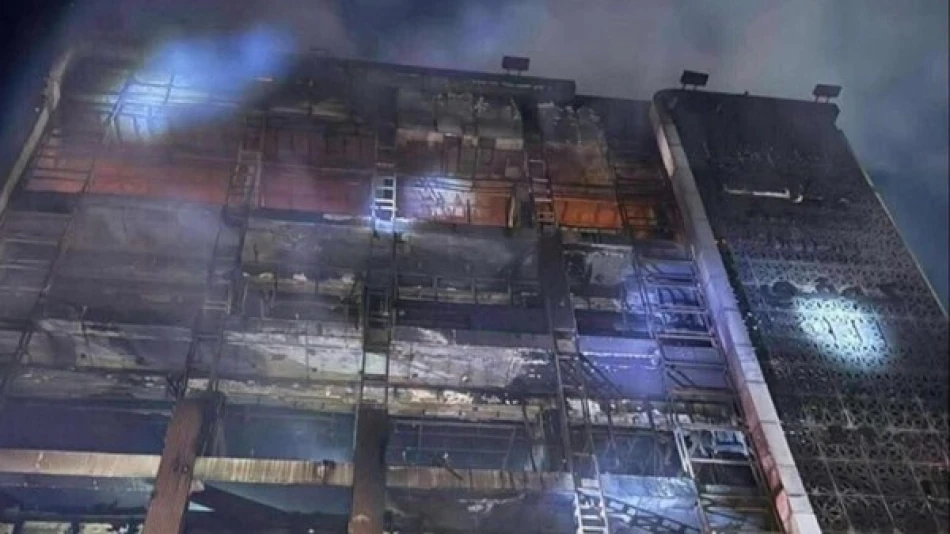
Iraqi PM Uncovers Cause of Devastating Wasit Fire Incident
Iraq's Prime Minister Demands Accountability After Mall Fire Kills 63, Exposing Systematic Safety Failures
Iraqi Prime Minister Mohammed Shia al-Sudani delivered a scathing rebuke of government negligence following a devastating mall fire that claimed 63 lives in Wasit province last week. The tragedy has exposed deep-rooted failures in safety enforcement and regulatory oversight, prompting the government to launch investigations and demand immediate reforms across all ministries.
A National Wake-Up Call
The fire at a hypermarket mall in Kut city, located 170 kilometers southeast of Baghdad, killed 63 people including women and children, with over 50 others injured. During Tuesday's weekly government session, al-Sudani characterized the incident as "a test for the state and its institutions" that revealed systematic failures threatening citizens' lives.
"If proper procedures and expertise had been in place, we would not have lost this number of citizens," al-Sudani stated, calling for what he termed a "real uprising" within each ministry regarding performance standards and safety compliance.
Government Response and Accountability Measures
Immediate Actions Taken
The government has approved recommendations from a specialized investigation committee and ordered the Wasit province governor to face questioning to determine responsibility levels. Al-Sudani emphasized that "there will be no favoritism, overlooking, or cover-up" when citizens' lives are at stake.
Systematic Reform Requirements
The Prime Minister directed all ministers to implement comprehensive safety overhauls within their departments, stressing that civil defense procedures and safety standards are "not supplementary items but mandatory legal requirements." The government has mandated that no permits should be granted without proper safety measures in place.
Broader Implications for Iraq's Governance
This tragedy highlights persistent challenges in Iraq's regulatory framework, where corruption and administrative negligence have historically undermined public safety standards. The incident mirrors similar disasters in developing nations where rapid commercial development often outpaces safety infrastructure and enforcement capabilities.
For Iraq, still rebuilding its institutional capacity after decades of conflict, this fire represents a critical test of the government's commitment to protecting citizens over business interests. The public outcry and government response suggest growing intolerance for the kind of regulatory failures that have characterized much of the post-2003 period.
Emergency Measures and Timeline
The government has established a one-month deadline for implementing all investigation recommendations, with the General Secretariat of the Council of Ministers required to submit progress reports. An emergency meeting has been scheduled involving governors and ministers from Interior, Health, Construction, Housing, Municipalities, Public Works, Labor, and Social Affairs.
All relevant agencies have been tasked with removing safety violations and civil defense infractions across the country, suggesting this incident may catalyze broader regulatory enforcement that has been lacking for years.
Testing Iraq's Institutional Resolve
The Kut mall fire has become more than a local tragedy—it represents a pivotal moment for Iraq's governance credibility. Al-Sudani's forceful response indicates recognition that continued negligence could undermine public trust in state institutions already weakened by years of poor service delivery and corruption scandals.
Whether this crisis translates into lasting safety improvements will depend on sustained political will and the government's ability to overcome entrenched bureaucratic resistance to meaningful reform. The one-month implementation timeline will serve as an early indicator of the administration's commitment to transforming rhetoric into concrete safety standards.
Most Viewed News

 Layla Al Mansoori
Layla Al Mansoori






